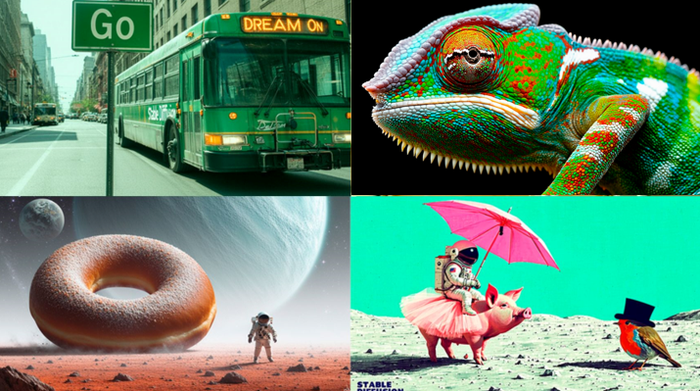Stable Diffusion 3: More Realistic, Better Speller
The latest version of the popular text-to-image model uses a new architecture, leading to improved performance

At a Glance
- The new Stable Diffusion 3 model boasts better image quality and will not misspell words in your images.
Stability AI, the startup that co-developed and commercialized Stable Diffusion, has unveiled the latest version of the popular text-to-image AI model.
Stable Diffusion 3 boasts “greatly improved” performance in image quality and spelling abilities, the startup said in a blog post. As users of text-to-image models know, getting correct spelling in a generated image can be tricky.
Stability said the model can also more easily handle multi-subject prompts.
The improved abilities stem from the model’s revamped architecture, which combines both a diffusion transformer with flow matching. While no technical details were published as yet, the general approach results in more photorealistic outputs, according to Stability.

Sample generations | Credit: Stability AI
Stable Diffusion 3 comes in a suite of sizes ranging from a miniscule 800 million to eight billion parameters. While not specifying how many models it is offering, Stability said it sought to provide users with a variety of options for scalability and quality to “best meet their creative needs."
Stability CEO Emad Mostaque posted examples on X (Twitter).
Mostaque confirmed that like prior Stable Diffusion models, it will be open source, but this latest version is not yet broadly available, though users can join the waitlist for an early preview.
Stability said it decided not to release the model yet as it wants to gather insights to improve its performance and safety ahead of an open release.
Enterprises will be able to use the model for commercial use, though this requires Stability AI Membership.
Stability said it has introduced “numerous safeguards” for Stable Diffusion 3 though it failed to disclose what those were. A technical report on the model will be published “soon.”
Read more about:
ChatGPT / Generative AIAbout the Author(s)
You May Also Like


.jpg?width=700&auto=webp&quality=80&disable=upscale)
.jpg?width=700&auto=webp&quality=80&disable=upscale)
.jpg?width=700&auto=webp&quality=80&disable=upscale)
.jpg?width=300&auto=webp&quality=80&disable=upscale)
.jpg?width=300&auto=webp&quality=80&disable=upscale)
.jpg?width=300&auto=webp&quality=80&disable=upscale)
.jpg?width=300&auto=webp&quality=80&disable=upscale)
.jpg?width=300&auto=webp&quality=80&disable=upscale)